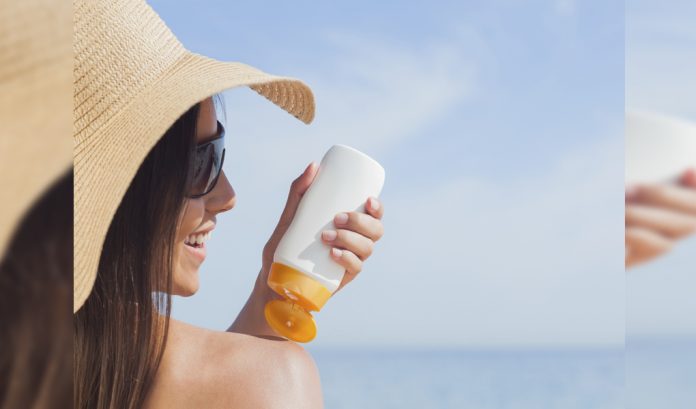
Now that you lathered that sunscreen with an SPF of 50 on your skin and all over your body, you’d think that you’re totally protected from the harmful rays of the sun. Guess again – you aren’t!
Scientists from Lomonosov Moscow State University of Russia have discovered that the most common sunscreen ingredient, avobenzone, actually does something to you when you’re swimming in chlorinated water. Phenols and acetyl benzenes, two chemicals that avobenzone produces when it comes in contact with chlorinated water, become toxic on your wet skin. That’s because the sunscreen reacts to the chlorinated water and UV radiation.
Phenols and acetyl benzenes are also associated with health problems like cancer, infertility, and immune system damage.
The reaction of these chemicals in swimming pools that have copper salts, giving the pools the color blue, is even worse. Upon contact with the water, the sunscreen can turn into “bromoform”, a chemical that is connected to liver problems, kidney problems, and nervous system disorders.
Aside from sunscreen, it is no comfort that avobenzone is also used in lipsticks, creams, and moisturizers that have SPF.
Is it time to forego sunscreen?
Is it time to ditch your sunscreen for something else? As University of Kansas Health System Dermatologist Daniel Aires said to the media: “It can degrade into some very harmful compounds, some of which are known carcinogens. What isn’t known is how much is absorbed into the skin, or if it’s to a level that can cause, or potentially increase, the risk of cancer. But this is certainly alarming.”
Alternatives to Sunscreen
Now that we don’t know how much of avobenzone is absorbed by the skin, we can probably think of natural alternatives to sunscreen.
Since sunlight carries Vitamin D which is a vitamin we need in our daily life, I recommend going out for your swimming activities and exposing yourself to the sun and dipping in the water around 6 am to 9 or 9:30 am. In that way, the sun’s rays are not that intense and your daily dose of UVA and UVB rays cannot cause irreversible sun damage to your skin. At that time, you may want to forego the sunscreen or sunblock initially.
Just follow some Thai friends of mine. They like to go swimming around 4:30 in the afternoon to evade the heat of the sun and being baked to a crisp. Sunscreen also blocks the skin’s production of Vitamin D, so foregoing the sunscreen in the early morning hours and later in the afternoon or early evening in the water would be good for you.








